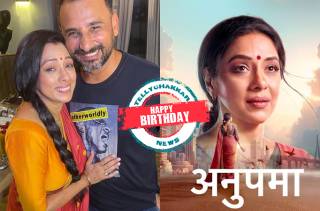
MUMBAI: Ray Parihar, who is seen as Farhaan in Prateek Sharma and Parth Shah’s Studio LSD’s Rabb Se Hai Dua, says while television reflects society, even society reflects television. He said, “In reality, it's a cyclical relationship: television reflects society, and society is also influenced by television.”
“The media can both shape and mirror cultural attitudes, creating a dynamic interplay between the two,” he added.
He further stressed that daily soaps often portray traditional values, customs, and relationships, reinforcing societal expectations. “Viewers may also learn from the characters' experiences, adopting positive values like empathy, kindness, and forgiveness. By resonating with societal values and beliefs, daily soaps can shape cultural attitudes, influence social behaviors, and provide a platform for representation and discussion,” he said.
Ray believes that his show has a positive impact on the audience, and said, “For instance, it highlights how a woman can manage both household responsibilities and large companies, competing on equal footing with men.”
“The show also conveys messages to young people, such as the importance of listening to elders and sharing problems with family—since, in the end, family will always be there for you. One of my favorite aspects of the show is that it portrays a stepmother who loves her children as much, if not more, than a biological mother. Sometimes, even biological sons and daughters aren't as caring as their stepchildren,” he added.
Asked how his show stands apart from other shows, he said, “I don’t want to compare our show with others because every show is unique in its own way. However, our show has found its identity through many elements: it's a female-oriented show that empowers women, enhances values and ethics, and showcases Islamic cultural aspects, among other things.”
And when it comes to playing a character on-screen, Ray feels that both short yet impactful characters or long term characters have their own value and can be effective in different ways.
He said, “Short but powerful characters can make a significant impact on the story and the viewers. On the other hand, long-term characters, through gradual progression, allow for a more nuanced and realistic character evolution. They can add depth and richness to the story with small, consistent actions.”
“Ultimately, a balance of both types is ideal. Short-term characters inject fresh energy, while long-term characters provide depth and continuity. The key is ensuring that each character, regardless of their duration, serves a purpose and adds value to the narrative,” he added.

















Add new comment